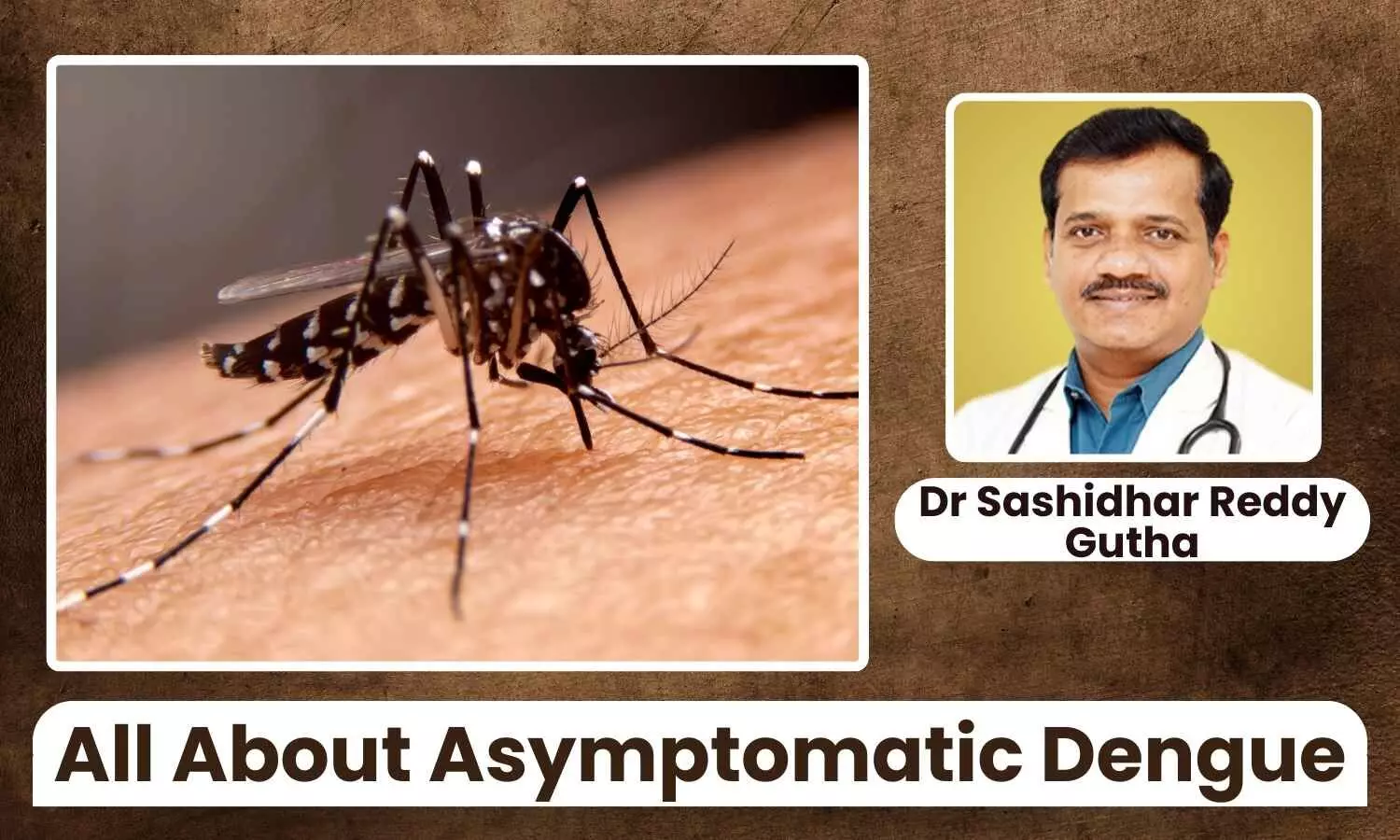When Dengue Doesn't Show: All You Need to Know About Asymptomatic Cases - Dr Sashidhar Reddy Gutha

A rising global health concern, dengue fever is sometimes referred to as "break-bone fever" because of its extreme body pain, back pain & muscle pain.
The majority of dengue infections don't show any symptoms at all, despite the focus on hospitalised patients with striking symptoms. These silent cases are not harmless at all; rather, they constitute an unnoticed reason behind dengue's continuous spread.
Silent Majority of Asymptomatic Dengue Infections
According to recent research, as per WHO, 40-80% of dengue infections don't show any symptoms. Imagine that for every dengue fever patient admitted to the hospital, there can be ten more people out there who aren't even aware they have the infection.
As undetected cases continue to spread the virus through mosquito bites, this silent transmission provides an ideal atmosphere for explosive outbreaks.
Why Asymptomatic Cases Needs Attention
1. Silent Transmission: Asymptomatic people continue about their everyday activities, giving mosquitoes ample chances to acquire and disseminate the virus, in contrast to symptomatic patients who remain at home.
2. Diagnostic Challenges: Since these cases are rarely examined for symptoms, health professionals are unable to determine the actual extent of infection in communities.
3. Immunity Paradox: Although earlier exposure may shield against symptoms, it does not always shield against infection, resulting in silent carriers who maintain the virus's ability to spread.
Behind the Scenes of the Virus
There are four primary serotypes of dengue (DENV-1, DENV-2, DENV-3, and DENV-4), and a fifth (DENV-5) was discovered in 2013. The bite of an infected Aedes mosquito transmits the virus, specifically:
- Aedes aegypti: The main attacker, which flourishes in urban centres
- Aedes albopictus: A species that can adapt and spreads to colder climates
Even in previously unaffected places, dengue is becoming more widespread due to the ideal surroundings these insects have due to urbanisation, climate change, and more global travel.
Immune System's Double-Edged Sword
What causes an illness to stop causing symptoms? Our immune systems hold the key to the solution:
• Antibodies that neutralise: Antibodies produced by prior dengue exposure may inhibit the virus without producing symptoms.
• Genetic Factors: Some persons are more susceptible to asymptomatic infections due to specific genetic markers.
• T-cell Responses: Some people develop quick immune responses that eradicate the virus before symptoms manifest. The adaptive immune response to viral infection includes the T-cell response as one of its key components.
Risk Factors Responsible for Asymptomatic Dengue Fever
- Secondary Infections: Because of antibody-dependent enhancement (ADE), a subsequent infection with a different serotype might cause severe symptoms.
- Viral Load: Increased initial exposure may overwhelm immune defences.
Detecting the Undetectable
It takes proactive methods to identify asymptomatic cases:
- Serological Testing: Antibody tests can map silent transmission by revealing previous infections.
- Community Surveillance: In high-risk locations, routine screening might reveal undetected outbreaks.
- Advanced PCR Testing: Molecular techniques are able to identify low-level illnesses that standard diagnostics miss. Breaking the Chain of Transmission
Prevention
With no specific antiviral treatment available, prevention remains our best weapon:
1. Individual Protection
- Apply EPA-approved mosquito repellents (DEET, picaridin, or oil of lemon eucalyptus)
- Wear light-coloured, long-sleeved clothes during peak mosquito hours i.e., dawn and dusk
- Install window screens, if possible
2. Community Action
- Eliminate stagnant water in containers, tyres, flower pots, coolers and open drainages
- Support local mosquito control programs
- Promote community awareness about asymptomatic risks
Public Health Strategies
- Implement smart surveillance, combining symptom monitoring and lab testing
- Develop vaccines effective against multiple serotypes
- Study asymptomatic cases to understand protective immunity
The Road Ahead
A major change regarding dengue management and treatment strategies is required due to the increasing awareness of the role that asymptomatic dengue plays in transmission. Conventional methods that just address symptoms are like trying to save a sinking boat without fixing the problem.
We should take the following measures :
- Invest in rapid, affordable diagnostic tools for mass screening
- Develop innovative vector control methods targeting urban mosquito habitats
Conclusion
Asymptomatic dengue is one of the most confusing challenges being faced by modern medicine, as the virus spreads most effectively when it causes no sickness. By recognising these hidden challenges to light, we can create more intelligent ways to disrupt the cycle of dengue transmission.
A single silent infection has the power to start epidemics across continents in our globalised society. Now is the moment to take action before someone who was unaware of their illness starts the next big outbreak.


